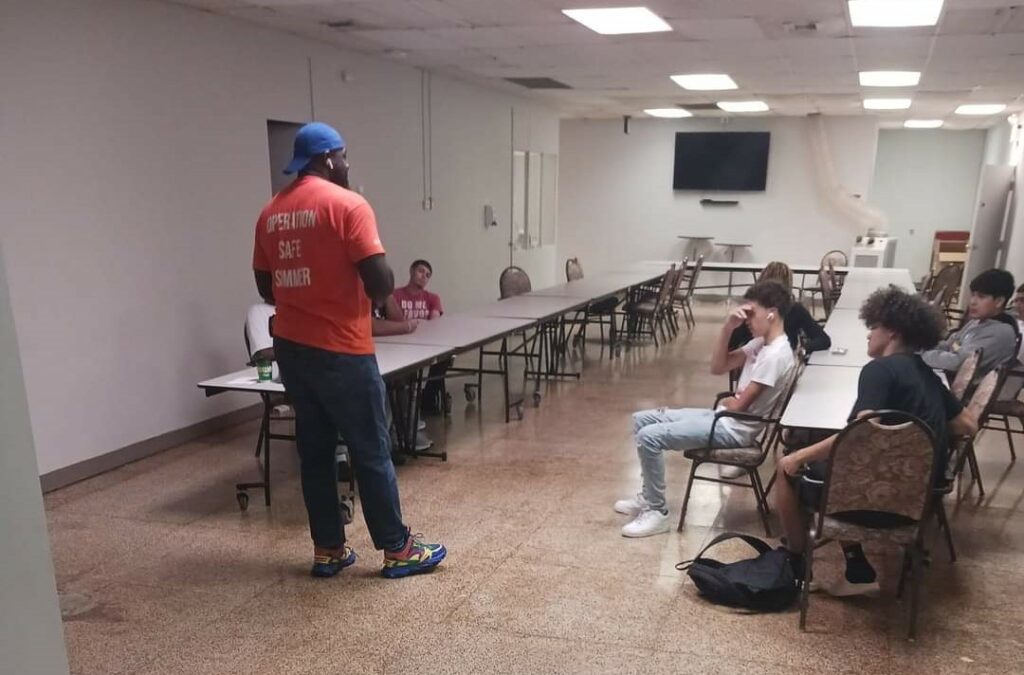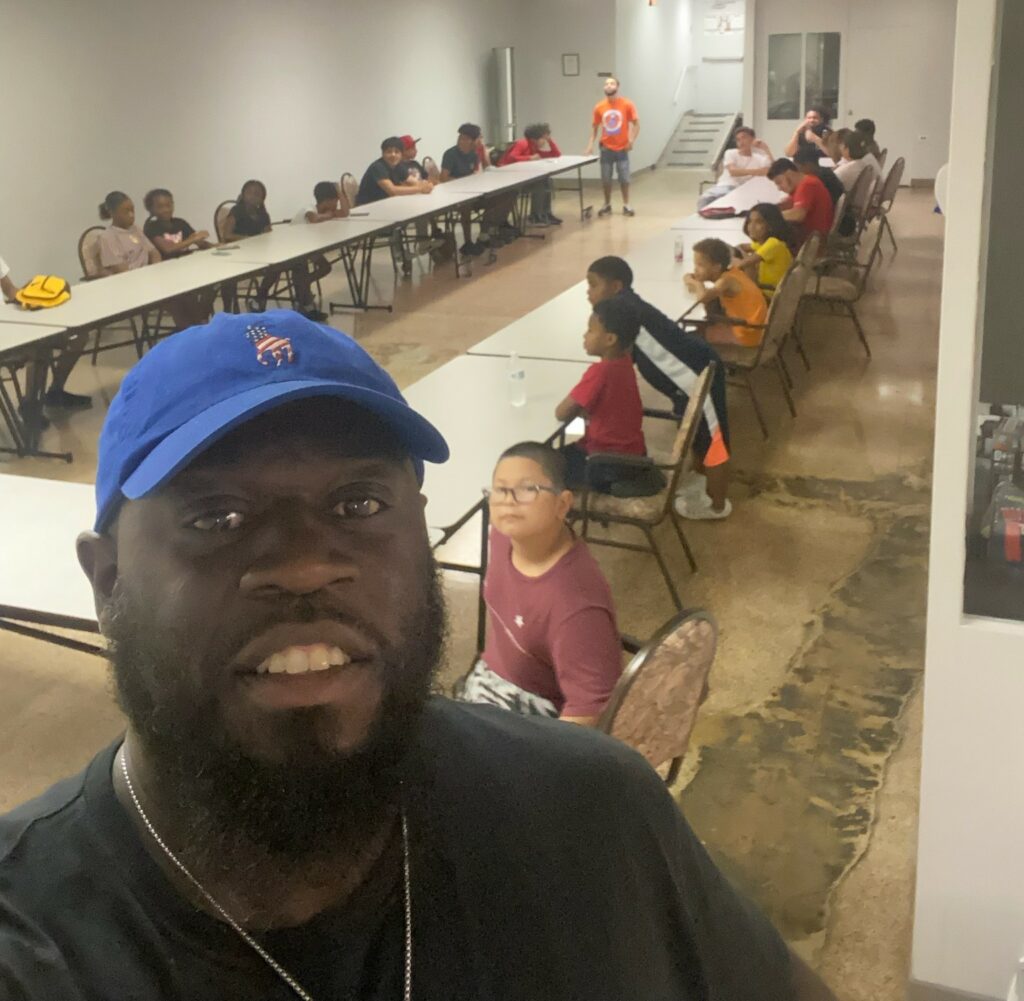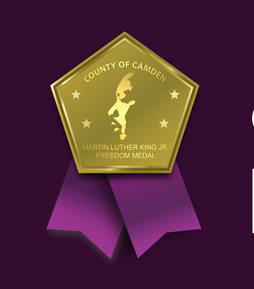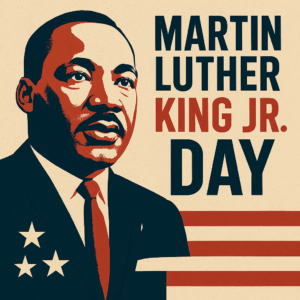Corey Glenn’s Transformation Helping Others Along Way
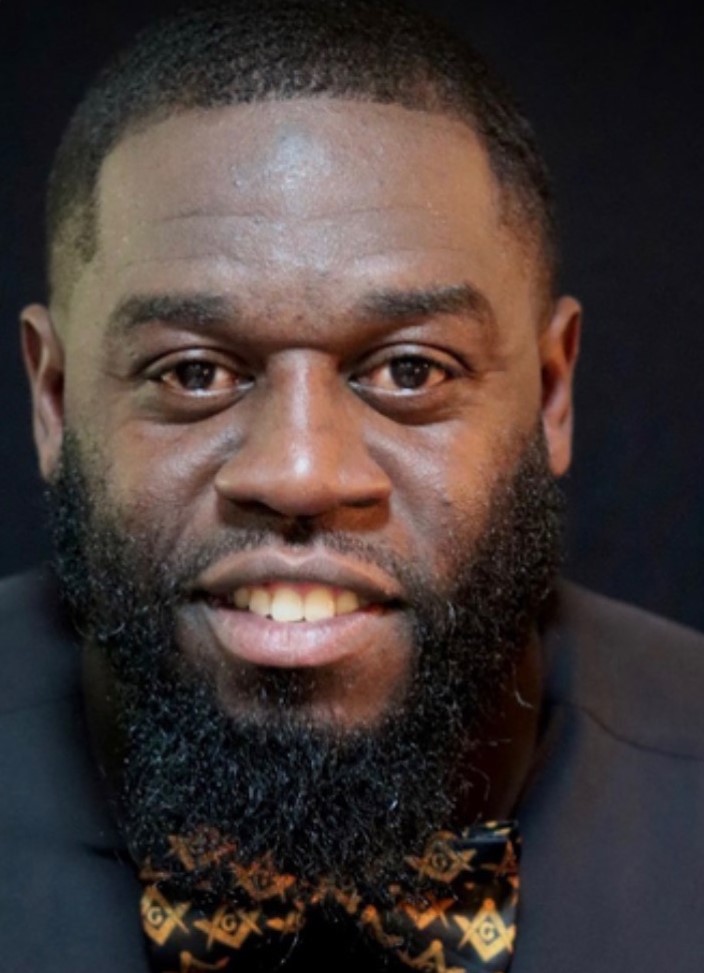
BY CLYDE HUGHES | AC JosepH Media
BRIDGETON — Corey Glenn strikes a commanding presence when he stands in front of a group of high schoolers at one of five schools he often addresses as community outreach director for the nonprofit Life Worth Living.
The organization, founded by Bridgeton native John Fuqua, targets local at-risk youth and gives them opportunities to stay away from — or leave — the dangers of street life, violence and drugs.
Glenn is what the organization calls a Credible Messenger — neighborhood leaders, experienced youth advocates and individuals with relevant experiences whose role is to help youth transform attitudes and behaviors beyond violence.
Glenn, 43, commands a presence not just because he’s stout 6-foot-4 with a voice that can fill an auditorium, but because he has seen and lived the other side where some of the youth he faces are leaning towards and paints a picture of a land that they don’t to want live in.
The dedicated life skills coach is three years out of federal prison on drug charges. Authorities told his mother she would never live long enough to see her son out of prison and living a positive life. In front of young eyes waiting to hear him speak, Glenn is intent on proving them wrong.
READ EDITORIAL: Everyone Should Hear Corey Glenn’s Story
“The biggest thing in me sharing my story with the kids at the high school is that they’re in a position where they can press reset, and like waking up and saying they want to change the color of their hair, thy can say I’m going to make better decisions,” Glenn told Front Runner New Jersey. “I want them to understand what it looks like, what hard work looks like, when you actually set a goal in front of you, say that you’re going to do better and work every day to do better.
“As time goes on, you build longevity and you get results. That’s the biggest thing I want them to get from my story when I tell them what it looks like to make good decisions. Even after you’ve made bad decisions.”
Glenn said he had a long history of making bad decisions that led to a life of violence, crime and drugs. He admitted that his activities hurt his community of Bridgeton and his family. He knows it will take time to make up for those wrong decisions and completely earn the trust of others.
“I’m just trying to stay focused and make a new path for myself,” Glenn said. “In trying to reinvent myself, I have to say that the hardest part of my change is getting people to accept that I had changed. So, I struggle with that and I work.”
One person who stuck with Glenn was Fuqua. The two grew up together in the same neighborhood. While Glenn dropped out of school, Fuqua left town, earned his college degree and lived away from the city before returning to start his nonprofit to help at-risk youth. A chance meeting after he was released from federal prison led to his current position.
“I walked past him one day at the Amish Market and he said, ‘Corey, I need you. I’m working with the community. I got the rec center down there. You’ve always been one that’s been able to acclimate and talk in different crowds and settings.'”
At the time, Glenn was still wearing an ankle monitor as part of his release from federal prison and his movement was legally limited. Once he was released from the federal monitoring, he refereed youth basketball games, which led to a meeting with Edward Bethea, the executive vice president of Gateway Community Action Partnership and a job in Delaware.
Shortly after that, Life Worth Living offered its community outreach and life skills job back in Bridgeton.
Glenn said those exchanges, from working with youth, working in the office setting during his job in Delaware and Life Worth Living gave him a “validation of acceptance” that he had been missing.
“I felt like I was finally getting somewhere,” Glenn said. “I worked [in Delaware] for about eight months, posting on my social media, my office job, letting them see me in my suit and tie every day. It started a buzz. I started building notoriety and John was like, man, I’m launching Life Worth Living. You going to be one of my first full-time employees.”
Fuqua said even when growing up, he always saw Glenn as a leader and just believed one day he would turn his life around. He said he couldn’t pass up a chance to hire him as one of his credible messengers for at-risk youth.
“Everyone can’t do this work as a credible messenger,” Fuqua told Front Runner New Jersey. “He’s really good at deescalating and conflict resolution when it comes to young people and older middle-aged adults. Whether it be in a business meeting or in a rough neighborhood, he always had a knack for the work.
“When I grew up with him, there was always something there. I mean, he always had one foot in one foot out, but I kind of figured when he was ready to make a choice, the right choice that he would accept whether it had been in the streets or in the boardroom, whichever one he decided, and he put his mind to it, he can do anything.”
Because of Glenn’s efforts to educate and improve himself in prison he was released early from his federal sentence. His sentencing judge was impressed enough to ask him to be a part of a program to help other inmates. Glenn said, though, when he speaks to them, he makes sure they know they have to become contributors to society.
“They say I want to be a motivational speaker for the kids and I want to go out and do this and do that,” Glenn said. “Everybody comes home wanting to tell people their story about the bad decisions that they made. I say, but what makes me different is that when people hear your bad stories and the mistakes you made, afterwards, they’re looking to hear, what are you doing now?
“What type of resume have you built? Now what are you doing because if you don’t have a positive platform to run right into after you tell them all the bad you’ve done, then your story is not effective.”
Glenn said one of the biggest motivations in turning his life around was his mother, Viola Glenn. She was struggling with her health when her son started his federal prison sentence. He said breaking the news to her left him chilled and vowing to do better.
“That was a life-changing experience for me because we had to start making real plans on what it looked like when she was deceased and I was still incarcerated being that I’m the oldest child and I was the power of attorney,” Glenn said.
“So being forced to go through that, that was powerful. All of that stood as motivation for me right now. When I tell people about my story, I never add that. I never tell people about that part of my life. They just know that I fight. I struggle every day to do what I got to do to make sure that I never go back to prison.”
Glenn has his own children to mentor as well — ages ranging from 27, 26, 25, 24, 18, 10 and one. He said he wants to keep the positive momentum going in his life for his children, who are now seeing their father for the longest stretch out of prison and his mother, who did get to see her son make good on his promise.
“I have an office downtown in the city that I used to wreak havoc in,” Glenn said. “I teach life skills and I mentor at five high schools in the tri-county area. That’s a testament. I work for juvenile probation for adjudicated youth. Right now, the state is being challenged by the Attorney General to reimagine justice and allow people that’s been adjudicated to advocate for people that’s been adjudicated if they’ve given the honest effort at reforming themselves. So, I’m the poster child for that.
“No parent wants to see a child that they have poured so much into and know has all the potential to succeed continue to make bad decisions and give that ill reflection of them. My mom feels blessed. She’s one of the happiest women that walked this earth about the changes that I made.”
The Rest of the Story
Glenn shared other things with Front Runner New Jersey during our interview.
FRNJ: Has there been a situation where when talking to kids where you felt you really made a difference?
Corey Glenn: I have a kid now, she’s a female and she says, years ago I would always hear my mom talk about you and that you were in trouble, that you were in prison. She said she never put two and two together that you were the person until you did your stint on branding and you said your street name was Ghost. When you said Ghost, it clicked. The little girl said it was just amazing that I really changed and now I’m here in her school and teaching.
FRNJ: How did that make you feel?
Corey Glenn: I was vindicated, man. I felt like my hard work paid off because that’s what I ultimately do it for. So, they understand that with the right decisions, it can be done.
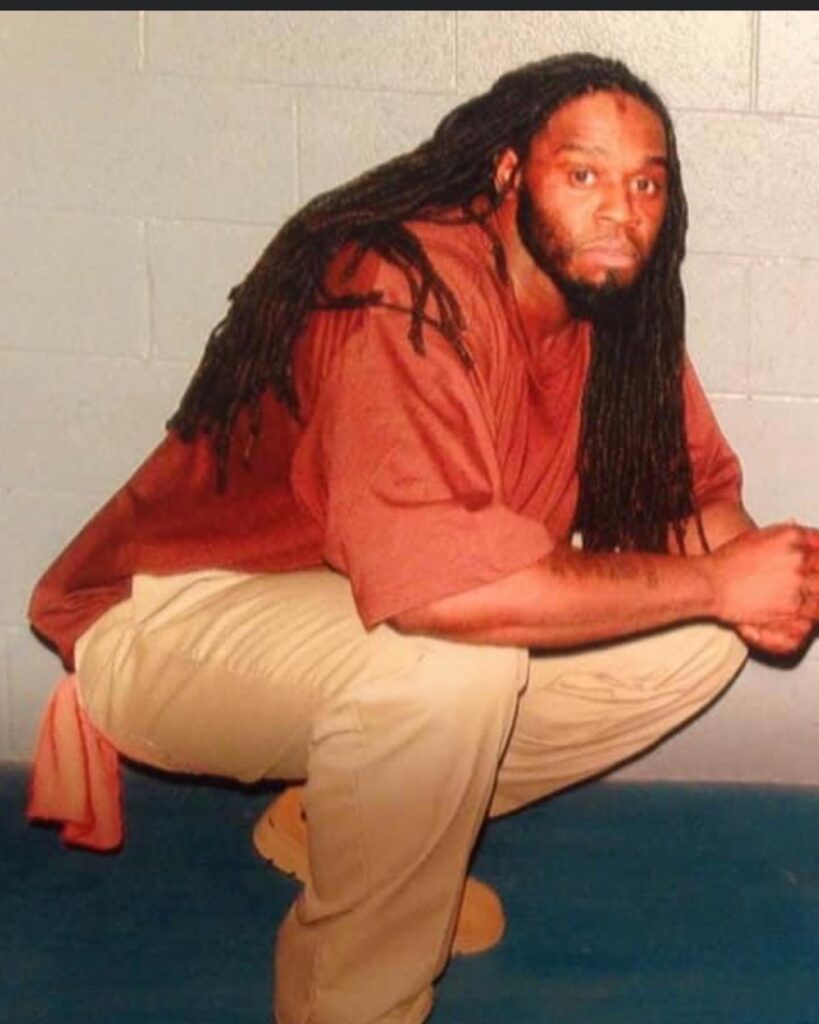
FRNJ: Give me a little bit about where you grew up and your life leading up to where you are now. Just whatever you’d like to share.
Corey Glenn: I’m from the Pamphylia Avenue apartment complex called Amity Heights, where I grew up with my boss, John Fuqua. I lived in Amity Heights until I was about 17. That’s where I started making my bad decisions at. That’s where I started picking up my savvy for the street life. I dropped out of school in about the 10th grade. I went on to sell drugs. I went from day school to night school for a notorious fight that I had with a senior that ended in me being really violent towards him. I was incarcerated as a juvenile.
They brought me back and let me in alternative school at night, but I couldn’t go back to day school, which ultimately led me to dropping out once I was 16. I grew up in a really good household as far as my mother. She never did any drugs, never had any trouble in her life. I was just drug trafficking, selling drugs of any sort that was going to make a profit. I wound up ultimately catching a state prison term when I was 27. I caught a couple charges for carrying a firearm, drug trafficking, just being repetitive in my bad decisions.
I did a state prison bid for five years. I came home in April 4, 2011, from doing the state bid, still doing the criminal behavior and not fully deterred. I wasn’t even home 12 months and on April 2, 2012, the FBI and the DEA picked me up for drug trafficking. They locked me up, charged me with conspiracy to possess, which was in violent violation of the United States Constitution. I made a conscious decision after I made that really rough phone call to my mother to tell her that I was in the biggest trouble of my life. I made a conscious decision that no matter how much time I got out of that last bad decision, that I was going to dedicate my life to change and that I just was going to stick with it. I did something that I never did before. I gave an honest effort to start making the right decisions and working on being the best of me. And not only that, humbling myself to put myself around the people that were incarcerated as well, that I admired, that wanted to come home and make really good decisions.
If you know anything about the federal system, they fly you all around. They put you on that plane, all according to your point system. Your custody levels go from maximum to medium to low until you can go to a satellite camp. You work your way down. While I started at maximum in West Virginia at one of the worst prisons in the country, it’s a blessing that I got to go there because I got to really see what it looked like on the other side of all my bad decisions.
While I was there, I continued to read. I continued to evolve, stick to my process. I continued to set goals and I put in front of me who I wanted to be when I was released. And I worked towards gaining all the tools that I needed to make sure I was going to be that best me possible.
I took a drug program called RDAT it was an intense cognitive modification drug abuse program. It did wonders for me. I completed it. It gave me a year off my sentence. I came home during the reign of Donald Trump in his presidency in 2020. I came home January 16, 2020. I worked as a barber my entire prison stay. I gained drug and alcohol treatment certifications through Stratford Career Institute through correspondence courses. I took about 50 different courses while I was in jail getting certified for different things. When I came home, I came home with my head on straight. I came home understanding that I had to prove myself to the people that I impacted with my bad decisions.
FRNJ: How powerful it is for you, knowing at the high schools you speak at, all of their eyes are on you hanging on every word you say hoping to find their truth?
Corey Glenn: I love it. So right now, I’m on what my boss always calls his legacy stretch. But it’s my legacy stretch too, because right now I get to reinvent myself, which I’ve done a really good job of doing. If you mentioned my name now, they won’t associate it with no foolishness.
Follow Us Today On:
Note from AC JosepH Media: If you like this story and others posted on Front Runner New Jersey.com, lend us a hand so we can keep producing articles like these for New Jersey and the world to see. Click on SUPPORT FRNJ and make a contribution that will do directly in making more stories like this available. Thank you for reading!
